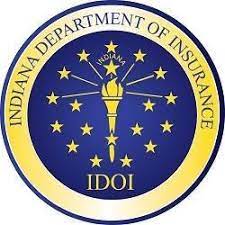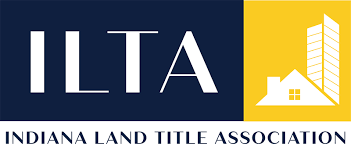Cultural Considerations in Notarization and Apostille Processing
- Notarize Online
- Aug 2, 2024
- 4 min read
Updated: Sep 25, 2024
In our increasingly globalized world, notarization and apostille processing often transcend borders, requiring professionals to interact with clients from diverse cultural backgrounds. Understanding and respecting these cultural differences is not just a matter of courtesy; it's essential for providing accurate and respectful services. This applies not only to international contexts but also within multicultural countries like the United States, where regional and cultural diversity can significantly impact professional interactions. Cultural knowledge is a valuable asset for professionals in this field. Let’s explore how culture plays a role in notarization and apostille processing, reviewing some examples, and discuss practical tips for avoiding misunderstandings and cultural faux pas.
The Role of Culture in Notarization
Notarization involves verifying the authenticity of documents and the identity of signers. This process may seem straightforward, but cultural differences can impact both the interaction and the documents themselves.
When it comes to communication styles, different cultures have varying norms around directness, eye contact, and body language. For instance, maintaining eye contact is often seen as a sign of confidence in Western cultures, whereas in some Asian cultures, it may be considered disrespectful, especially in hierarchical relationships. In Japan, a notary might bow and use formal language when greeting clients, reflecting the culture's emphasis on respect and hierarchy.
In many cultures, addressing clients with the appropriate titles (Mr., Mrs., Dr., etc.) and showing deference to elders is crucial. Using first names or a casual tone can be seen as disrespectful. In some Middle Eastern and Hispanic cultures, it is customary to engage in polite conversation before getting down to business, demonstrating a personal connection and respect.
Cultural Considerations in Apostille Processing
Apostille processing authenticates documents for use in foreign countries, often involving legal, educational, or personal documents. Cultural differences can influence how these documents are perceived and the expectations around their presentation.
While the legal requirement may not necessitate translations, providing documents in the local language can be a sign of respect and thoroughness. This is particularly important in countries where the official language differs significantly from the language in which the documents were originally created. In European countries, providing documents in multiple languages, including the local language, can help avoid misunderstandings and demonstrates professionalism.
The use of seals and stamps varies widely. In some cultures, an official seal is a critical mark of authenticity, while in others, it might be less emphasized. This custom is still active in lands such as China. An official red seal is often seen as a crucial mark of authenticity on certain documents. Its absence can lead to questions about the document's legitimacy.
Cultural Diversity Within the United States
Even within the United States, cultural differences can influence how we conduct our business. The U.S. is a melting pot of cultures, with significant regional and ethnic diversity that can impact professional practices. In the South, more formal language and respectful titles are common, reflecting a culture of politeness and respect. In contrast, in the Northeast or West Coast, business interactions may be more casual and direct. Attitudes towards punctuality can also vary. In some regions, strict adherence to scheduled times is expected, while in others, there may be a more relaxed approach.
Notaries and apostille agents may encounter clients who speak languages other than English or who prefer to use interpreters. Understanding and accommodating these preferences can enhance the service experience. Of course, a notary professional must adhere to state law regarding the use of an interpreter.
Awareness of significant cultural holidays and practices, such as Ramadan for Muslim clients or Lunar New Year for East Asian clients, can help professionals schedule appointments and understand any special considerations.
Why Cultural Knowledge is an Asset
Professionals who are culturally knowledgeable can offer better service, build stronger client relationships, and avoid potential misunderstandings. This understanding can lead to clients who are more likely to trust and feel comfortable with professionals who show respect for their cultural norms and practices. Culturally sensitive practices can attract a wider client base, including international clients and those from diverse backgrounds within the United States.
Ways to Respect Other Cultures in Notarization and Apostille Services
Research and Educate Yourself Learn about the cultural norms and expectations of the communities you serve.
Ask for Guidance When in doubt, ask your clients how they prefer to be addressed and if there are any cultural considerations they would like you to be aware of.
Use Appropriate Language and Titles Be mindful of how you address your clients and the language you may use in documentation.
Be Aware of Non-Verbal Cues Understand the importance of body language, eye contact, and personal space in different cultures.
Offer Translations Provide translations of documents when necessary or requested, even if not legally required.
Respect Religious and Cultural Symbols Be aware of the significance of religious and cultural symbols and how they are represented in documents.
Cultural considerations in notarization and apostille processing are not just about avoiding offense. Being culturally conscious is about providing a respectful and professional service. By understanding and respecting cultural differences, notaries and apostille agents can build trust, enhance client relationships, and expand their business opportunities. As our world becomes more interconnected, the ability to navigate these cultural nuances becomes an invaluable asset for any notary professional.
317-373-4370 | Info@ChristieNotary.com | ChristieNotary.com
Located in Indianapolis, Indiana
About Me: Since 2003, I have proudly served my community as a Notary Public, offering reliable and professional services. I transitioned to Remote Online Notarizations in 2020 and began serving as a Certified Apostille Agent in 2021. With extensive training and certification, I specialize in handling all types of legalizations, including complex Embassy Legalizations. Based in Indianapolis, Indiana, I am dedicated to providing efficient and stress-free notarization and apostille services both locally and worldwide.
The above affiliate links may result in compensation.





























Comments